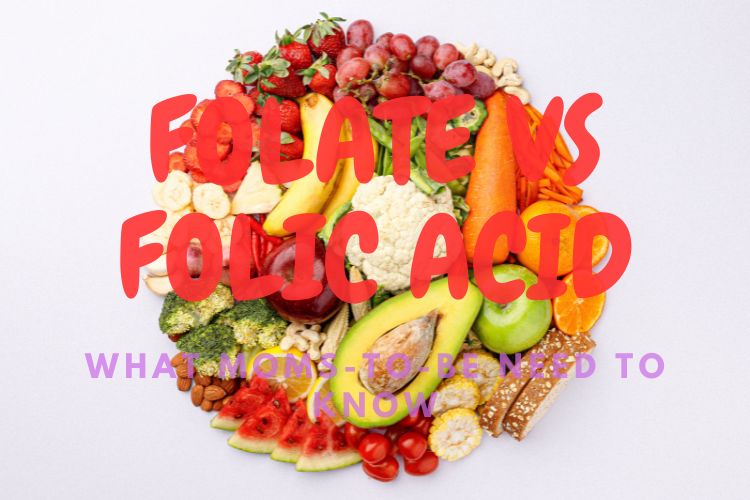Folate Vs Folic Acid

Folate vs. Folic Acid: What Moms-to-Be Need to Know
(By Merve Ciray MS RDN CDN)
When it comes to pregnancy nutrition, folate and folic acid are two words you hear often. But what’s the difference—and why does it matter? Let’s break it down in a simple, science-backed way.
What is Folate? Folate is the natural form of vitamin B9 found in foods like leafy greens, beans, avocados, and citrus fruits. Your body needs folate to make DNA, build healthy cells, and support a growing baby’s development—especially in the very early stages of pregnancy.
👉 Key sources of folate:
-
Spinach, kale, and romaine lettuce
-
Lentils and chickpeas
-
Oranges and strawberries
-
Avocados
-
Fortified whole grains
What is Folic Acid?
Folic acid is the synthetic (man-made) version of vitamin B9. It’s found in many prenatal vitamins and added to fortified foods like cereals, breads, and pasta. While folic acid is highly effective at preventing neural tube defects (like spina bifida) when taken before and during early pregnancy, it needs to be converted into its active form (called L-methylfolate) inside the body. ⚡ Here’s the catch: Not everyone converts folic acid efficiently—especially women with a genetic variation called MTHFR mutation. That’s why some prenatal vitamins now contain methylfolate — the ready-to-use form — which may be a better option for women with MTHFR concerns.
Why Is Folate (or Folic Acid) So Important During Pregnancy?
-
Reduces risk of neural tube defects (by up to 70% if taken before conception and during the first trimester)
-
Supports placenta formation and DNA production
-
Helps prevent anemia during pregnancy
-
Plays a role in brain and spine development of the baby
Most guidelines recommend 400–600 micrograms (mcg) of folate or folic acid per day before and during early pregnancy.
So, Should You Choose Folate or Folic Acid? ✨ For everyday diet: Focus on natural folate from whole foods. ✨ For supplementation: Take a prenatal vitamin containing folic acid or methylfolate, depending on your healthcare provider’s advice.
Bottom line: Both folate and folic acid are vital. What matters most is getting enough—through foods, supplements, or ideally, both!
Final Tip for Moms Start boosting your folate intake before you start trying to conceive. Folate works its magic early—often before you even know you’re pregnant! 🌸 If you’re unsure which supplement is right for you, talk with a registered dietitian or healthcare provider for personalized guidance.
#Folate #FolicAcid #PregnancyNutrition #PrenatalVitamins #HealthyPregnancy #DietitianNewYork #PregnancyTips
 Subscribe to receive my FREE Nutrition for Eating Out Guide!
Subscribe to receive my FREE Nutrition for Eating Out Guide!